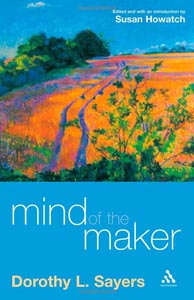Reality, responsibility, and ‘The Eye of the Maker’
To admit the fact that contradicts all one’s assumptions is the mark of an honest man.
—David Warren
Whatever you may think of the Hebrew Scriptures as theology or history, they are certainly sound as psychology: far sounder, in fact, than we parochial moderns (who like to believe that the study of the human mind began only with Freud) can admit without considerable abashment.
Eve, then Adam, ate the forbidden fruit: that, we are told, was the first sin. The second sin, which followed immediately, was trying to shift the blame. ‘Eve made me do it,’ said Adam, and ‘The serpent made me do it,’ said Eve. The serpent seems not to have been available for questioning, but if God did in fact track it down and ask for its account of the story, it probably said: ‘I just told them about the fruit. I didn’t pick it.’ There was enough blame to go round, but none of the three guilty parties would accept a proper share of it. So instead there was enough blame to go round . . . and round . . . and round — and it is going round still. [Read more…]








Recent Comments